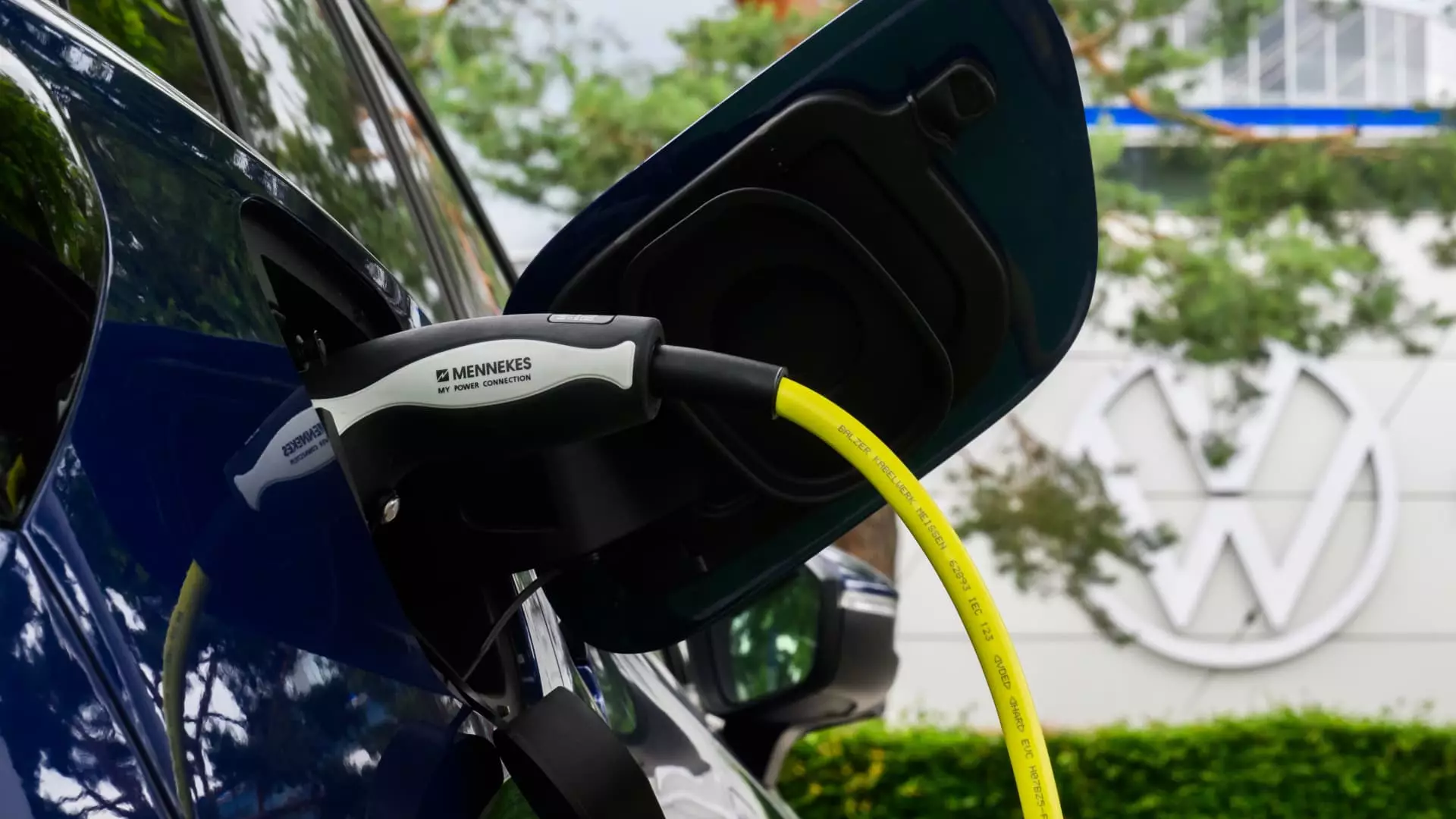European car manufacturers are facing a multitude of challenges as they strive to transition towards full electrification in the automotive industry. These challenges include limited availability of affordable electric vehicle (EV) models, a slower-than-expected rollout of charging infrastructure, and the potential impact of tariffs on EVs made in China. This article explores the difficulties that companies like Volvo Cars are encountering on the road to achieving their electrification goals.
Volvo Cars, a Swedish automaker known for its commitment to sustainability, recently announced a shift in its electrification strategy. Initially planning to sell only EVs by 2030, the company has now revised its target to have between 90% and 100% of its car sales be fully electric or plug-in hybrid models by the same year. This comes as a response to changing market conditions and the need to be “pragmatic and flexible” in the face of ongoing challenges. Additionally, up to 10% of Volvo’s sales will consist of mild hybrid models by the 2030 deadline.
Industry-Wide Adjustments
Volvo’s decision reflects a larger trend within the automotive industry, with crisis-stricken companies like Volkswagen, Ford, and Mercedes-Benz Group also pushing back their timelines to phase out internal combustion engine vehicles in Europe. Tim Urquhart, a principal automotive analyst, notes that many manufacturers are reevaluating their electrification targets and the necessity of continued investment in internal combustion engine technology to remain competitive. This shift underscores the evolving landscape of the automotive market and the need for adaptability.
Government initiatives aimed at promoting EV adoption, such as mandates for a percentage of new car sales to be zero-emission vehicles, pose additional challenges for carmakers. The U.K., for example, has set a goal for all new car sales to be zero-emission by 2035. While these targets are intended to reduce pollution and incentivize clean energy solutions, they also place pressure on manufacturers to meet consumer demand while navigating regulatory requirements. Urquhart emphasizes the importance of aligning regulatory policies with market realities to facilitate a smoother transition to electrification.
Despite industry efforts to promote EVs, there remains skepticism and resistance among consumers. Urquhart highlights the difficulty of convincing mainstream buyers to transition from traditional vehicles to electric alternatives, citing concerns about infrastructure, charging logistics, and overall driving experience. He acknowledges the challenges of changing ingrained habits and preferences, stressing the need for a nuanced approach to encourage widespread adoption of EV technology.
While the short-term outlook for EVs may be uncertain, analysts emphasize the long-term inevitability of electric mobility. Companies recognize the strategic importance of investing in EVs to stay competitive and meet sustainability goals. Although challenges persist, including fluctuations in sales and ongoing uncertainties, the overall trajectory towards electrification remains clear. Car manufacturers must balance profitability with innovation to navigate the evolving landscape of the automotive industry.
European car giants are confronting a complex array of hurdles on their journey towards electrification. From supply chain disruptions to regulatory pressures and consumer perceptions, the path to sustainable mobility is fraught with challenges. By adjusting strategies, fostering innovation, and collaborating with stakeholders, these companies can overcome obstacles and drive meaningful change in the automotive sector. The future of mobility lies in electric vehicles, and success will depend on how effectively car manufacturers navigate the transition.

Leave a Reply